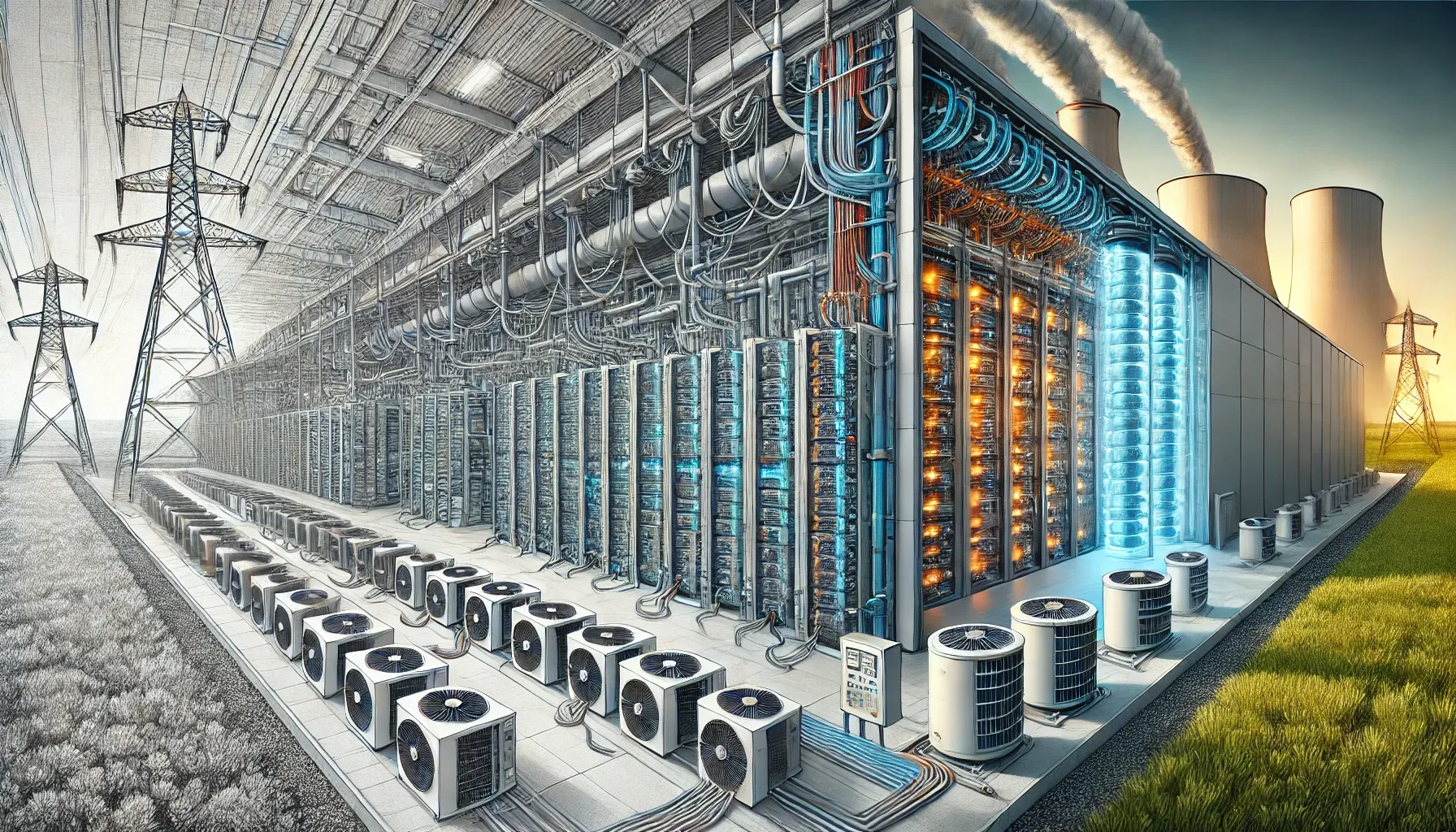CHICAGO — As Illinois braces for a sharp rise in electricity usage driven by the expansion of data centers, energy experts and public voices are urging a bold push toward a carbon-free energy future.
A recent letter published by the Chicago Tribune reflects the growing debate. While fossil fuels will continue to play a role in the near future, many in the state now view clean energy as an essential long-term investment.
Rising Demand from Data Centers
One of the central concerns is the projected 30% increase in annual electricity consumption by 2040, largely due to the rapid construction of data centers across the state. These facilities — essential for cloud computing, AI, and streaming services — are notorious for their massive energy requirements.
Illinois, with its central location and existing infrastructure, has become a prime destination for such facilities, putting additional pressure on an already stressed power grid.
Fossil Fuels vs. Clean Energy
In an earlier editorial, Edward Cross of the Kansas Independent Oil & Gas Association emphasized the role of domestic oil and gas in meeting rising global energy needs. He argued that if the U.S. must consume fossil fuels, it’s better to produce them domestically.
However, the Tribune’s June 19 letter points to the risks of over-reliance on traditional fuels and stresses the importance of preparing for long-term sustainability. Supporters of clean energy argue that Illinois is already falling behind in meeting its climate goals and risks missing critical infrastructure opportunities if it doesn’t adapt.
Grid Modernization and Reliability
Illinois is also dealing with calls to modernize its electrical grid, which critics say isn’t currently equipped to handle the kind of flexible, large-scale energy load data centers require.
Carbon-free advocates say the solution lies in:
-
Investing in wind and solar installations, particularly in rural areas
-
Incentivizing battery storage and grid reliability systems
-
Upgrading transmission lines to carry renewable energy from generation to demand centers
Environmental and Economic Benefits
Proponents argue that a shift to clean energy isn’t just about climate — it’s also about economic stability. Renewable energy projects can create local jobs, boost rural economies, and reduce long-term utility costs.
A report from Synapse Energy Economics highlights the risks associated with unregulated data center growth. It warns that without oversight and carbon-free mandates, Illinois could face volatile electricity prices and increased emissions.
Read More: Columbia College Lays Off 20 Faculty Members Amid $38M Budget Crisis
Balancing Today’s Needs with Tomorrow’s Vision
The debate highlights a key challenge: meeting immediate power needs without compromising the future.
Fossil fuels remain essential in the short term, particularly for reliability. But carbon-free energy is no longer just an environmental talking point — it’s rapidly becoming an economic and infrastructural necessity.
With demand projected to surge and climate policy becoming increasingly urgent, Illinois now finds itself at a critical energy crossroads.
What are your thoughts on Illinois’ energy future? Should the state prioritize renewables now or balance with fossil fuels for a few more decades? Share your take at ChicagoSuburbanFamily.com.














